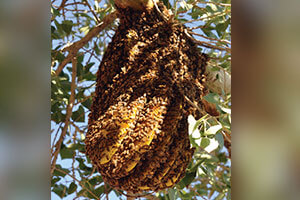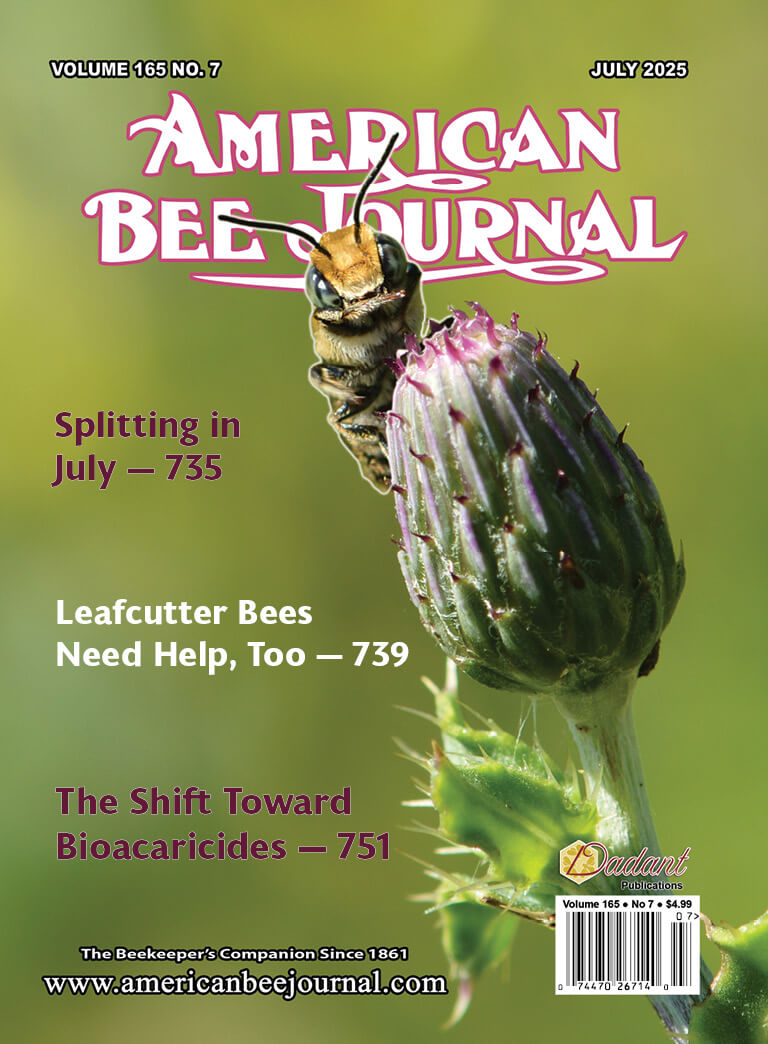
A Paper Trail: A Tale of Bees and Bureaucrats
A year or so ago, a friend of mine spotted a beautiful colony of honey bees hanging from a cottonwood branch about twenty feet above the ground. It had five or six drawn combs about a foot in diameter covered with bees. The tree was at a public place I will not mention, that was under the jurisdiction of a government entity that I will not name.
My friend thought there might be some risk to the over-curious or malicious public (and he was eager to capture a strong remote feral colony!), so he asked an acquaintance who worked at the facility if we could remove the bees. The answer was “Sure. I don’t see why not.”
As we made plans for the high, tricky removal, I thought I would cover all the bases ahead of time and called to see if we could drive our pick-up to the tree in question. (First Mistake) The fellow who answered the phone said “Bees. What bees? Where? I don’t know anything about any bees. I’ll have to check with My Supervisor.”
I got a call back from the fellow a few hours later instructing me to call The
Biologist.
I called the The Biologist and mentioned all the good reasons to remove a colony from a well-traveled public space. I explained that honey bees were not an endangered species, so no problem there, but were, in fact, introduced to North America – that some folks even call them an invasive species. I said that samples of the bees would be sent off to determine their genetic lineage. I said the bees would almost certainly die over the winter anyway. I said we would leave the site undisturbed, but would neatly remove the branch the colony was hanging from.
The Biologist eventually said that while she could find no Official Policy regarding honey bees, she would check with her Supervisor, and if he was willing to issue a Permit, she would approve it.
I then got a call from her Supervisor saying that, while my request was unusual, if I would sign a permit we could go ahead and remove the errant bees. A day later I received an email from The Supervisor, with only the word “Attachment” in the subject line and nothing written in the text section.
Attached was a Permit for, quote, “the removal of one cottonwood branch for
science.”
No mention of those honey bees, who had no Official Policy of their own. No paper trail. A perfect CYA! The Bureaucrats all got off scot-free. The bees, however, were caught.
– J.S.,
Could be anywhere
Photo Caption: Feral colony hanging from a cottonwood tree branch.
STATE HONEY BEE INSPECTOR QUESTIONED BY ASSISTANT U.S. PROSECUTOR
In the early 1960’s I started my first summer as a state honey bee inspector for the Massachusetts Department of Agriculture. Having been active for four years as a 4-H beekeeper, the County Agent, Mr. Edward K. Knapp, gave me a high recommendation for this summer post. What I didn’t know then, but found out much later, was that these state jobs were hard to fill because the friends and nephews of state legislators did not really want to experience a handful or armful of stings during their summer employment!
I was given a booklet that listed every bee owner or beekeeper in Barnstable County by town. My assignment was to track down each apiary location and to inspect each hive or make a notation if the keeper or owner had no more colonies on his/her property. What I began to find, as I worked my way from Yarmouth toward Provincetown, was that, of the many listings in the record book, there were considerably fewer active keepers of bees. Cape Cod, Barnstable County, then, had not been inspected for a few years, so I was closing out several inspection records.
One conversation with a particular beekeeper stands out in my memory. I had stopped at Wellfleet Town Hall to get local directions to some of the places I had to visit. I headed from there to Bound Brook Island Rd. and finally found my listed house. I knocked on the front door and was greeted by a young lady, and asked for the person on the inspection record, Francis B. Biddle. She ushered me into the dining room. An elderly (to me) man was sitting at this Duncan Phyfe table in his pajamas and bathrobe reading the New York Times and enjoying a late breakfast. He explained that he did not keep honey bees any more but that he had enjoyed the hobby for several years. He felt that it connected him with the agricultural tradition of the nation and that good soil and well pollinated forage crops were important for a prosperous nation. He then proceeded to ask me several questions: Where was I in my schooling? What were my immediate or long-term goals in life? What prepared me for assuming the duties of my post? What did I like most about beekeeping? What were some of the things I had learned from my readings about honey bees? The thing I began to sense during our conversation was that there was a sincerity and genuine interest in his very specific and thought-provoking line of questioning. In no way did I take offense at his questions. They only caused me to think more deeply about what I was doing, and what my future life goals might be. Some of my responses to him may have seemed shallow, but it encouraged me to consider some ideas that no teacher or guidance person had as yet posed to me.
Here I was, age 19, having completed only one year of college, no college history courses yet, and only …


